- Sermon Topics
- Contributors
- Sermon Illustrations
- Church Leadership


Growing in Christ: The Essentials of Discipleship
Discipleship. It’s a word we often hear in Christian circles, but what does it truly mean? Discipleship is more than attending church services or simply believing in Jesus. It is a lifelong journey of growing in our relationship with Christ, surrendering our lives to Him, and becoming more like Him. It is about walking closely with our Savior, learning from Him, and allowing His transformative power to shape us from the inside out.
Today, we embark on a journey to explore the essentials of discipleship, using the powerful words of Jesus Himself found in John 15:1-8. In this passage, Jesus uses the analogy of a vine and branches to teach us profound truths about being His disciples. We will unravel the foundational discipleship principles and discover how to grow in Christ.
So, with hearts open and minds ready, let us dive into John 15:1-8, eager to uncover the rich wisdom and guidance it holds for our spiritual growth. Together, let us embark on this journey of understanding discipleship and discovering how we can become more deeply rooted in Christ.
The Vine and the Branches
Let us turn our attention to the central passage of John 15:1-8. In this profound teaching, Jesus paints a vivid picture of Himself as the true vine and His followers as the branches. Just as the branches draw their life and sustenance from the vine, we, as disciples of Christ, are called to remain intimately connected to Him. Through this vital connection, our spiritual growth and fruitfulness are made possible.
Jesus emphasizes the vital importance of abiding in Him for our spiritual growth. Just as a branch cannot bear fruit on its own but relies entirely on the vine, we are utterly dependent on our relationship with Christ. Our connection to Him is the lifeline that nourishes us, empowers us, and enables us to bear fruit that brings glory to God.
As we explore this concept of abiding in Christ, we grasp the essence of discipleship. It is about surrendering our lives to Him, continually seeking His presence, and aligning our will with His. We find strength, guidance, and transformation through this deep and abiding relationship. In this divine union, we discover our true identity and purpose as His disciples.
Now that we understand the significance of abiding in Christ let us delve further into the marks of a disciple. What are the distinguishing characteristics that set apart those who wholeheartedly follow Jesus? Join me as we explore these traits and seek to embody them in our own lives.
Marks of a Disciple
As we delve into the teachings of Jesus in this passage, we discover the distinguishing marks of a disciple. First and foremost, love stands as a defining characteristic of discipleship. Jesus declares, “As the Father has loved me, so have I loved you. Now remain in my love” (John 15:9). Our love for God and our fellow human beings sets us apart as disciples of Christ. Through this love, we reflect the very nature of our Savior and demonstrate the authenticity of our discipleship.
Furthermore, discipleship is not merely an abstract concept but a practical outworking of our relationship with Christ. Jesus emphasizes that a disciple will bear much fruit (John 15:2, 5). This fruitfulness manifests in our actions, attitudes, and character, bringing glory to God and serving as evidence of our discipleship. Through our fruitfulness, the world witnesses Christ’s transformative power in our lives.
However, the journey of discipleship can be challenging. Jesus mentions the pruning process in John 15:2, symbolizing the necessary discipline and refinement that takes place in the life of a disciple. Just as a gardener prunes the branches to ensure their growth and productivity, God, in His love, prunes and shapes us through various circumstances and experiences. This process may involve challenges, trials, and even moments of discomfort, but it is essential for our growth and conformity to Christ’s likeness.
Having explored the marks of a disciple, we now come to a pivotal question: How can we actively grow in Christ through discipleship? Join me as we uncover practical steps and essential principles that enable us to cultivate a profound and transformative discipleship journey rooted in love, bearing fruit, and embracing the refining work of the Master Gardener.
Growing in Christ through Discipleship
Discipleship is not a stagnant state but a dynamic process with immense transformative power for our spiritual growth. As we commit ourselves to following Christ wholeheartedly, we embark on a journey of becoming more like Him. Through discipleship, we are shaped, molded, and renewed by the power of the Holy Spirit.
The practice of spiritual disciplines is key to our growth in Christ through discipleship. Prayer, Bible study, and worship are integral components that nourish our souls, deepen our understanding of God’s Word, and foster intimacy with Him. Engaging in these disciplines allows God to speak to us, reveal His truths, and ignite passion within our hearts.
In addition to personal disciplines, fellowship, and accountability play a significant role in discipleship. Surrounding ourselves with fellow believers who share our journey of following Christ strengthens and encourages us. Through meaningful connections and relationships, we can spur one another on in our faith, provide support during challenges, and share in the joys and struggles of discipleship. Moreover, accountability partners help us stay aligned with our commitment to Christ, challenging us to grow and holding us responsible for our actions and attitudes.
It is crucial to recognize that while discipleship holds incredible blessings and rewards, it is not without challenges. In the following segment, we will address some common obstacles and struggles disciples face and discover how we can overcome them. Together, let us face these challenges head-on, relying on the strength and guidance of our Savior as we continue our journey of growing in Christ through discipleship.
Overcoming Challenges in Discipleship
Though deeply rewarding, discipline can also present various challenges along the way. As disciples, we may encounter obstacles that test our faith, doubts that assail our beliefs, temptations that entice us, and spiritual warfare that seeks to hinder our progress. Yet, in the face of these challenges, we are not left defenseless.
When doubts arise, we can pray to God’s Word for assurance and seek His guidance. In moments of temptation, we can rely on the power of the Holy Spirit and the strength found in community and accountability. Recognizing the reality of spiritual warfare, we put on the armor of God and stand firm in our identity as disciples of Christ.
In the midst of these challenges, we are encouraged to persevere in discipleship. We are reminded that God’s grace is sufficient, His promises are true, and His faithfulness endures. Even when the path seems difficult, we are called to press on, relying on our Savior’s strength and leaning on our fellow believers’ support.
Discipleship in Action
Discipleship is not a theoretical concept confined to church walls; it is a lived experience that permeates every aspect of our lives. In the practical application of discipleship principles, we truly reflect Christ to the world around us.
In our daily lives and relationships, discipleship calls us to live out the values and teachings of Jesus. It means demonstrating love, forgiveness, humility, and grace in our interactions with others. By living as Christ’s representatives, we become living testimonies of His transformative power and draw others closer to Him.
Moreover, discipleship compels us to go beyond ourselves and engage in acts of service. As we grow in Christ, our hearts are stirred to love and care for others, meeting their needs and extending a helping hand. We embrace the call to make disciples, invest in the lives of others, share our faith, and guide them on their journey of following Christ.
Furthermore, discipleship fuels our passion for evangelism and for sharing the life-changing message of the Gospel. As we grow in our understanding of God’s love and salvation, we are compelled to proclaim it to a world in desperate need. Discipleship ignites a fire within us to reach the lost, share our testimonies, and lead others into a personal relationship with Jesus.
As we conclude this sermon, let us take a moment to recap the essentials of discipleship that we have explored. From abiding in Christ and bearing fruit to navigating challenges and engaging in discipleship, these principles form the foundation of our growth in Christ. May we carry these truths in our hearts, allowing them to shape our lives, and continually seek to grow deeper in our discipleship journey, always rooted in the essential truths of God’s Word.
As we close, let us remember the importance of discipleship. Through discipleship, we experience Christ’s transformative power, bear fruit that glorifies God, and impact the world around us. May we embrace this calling, actively applying discipleship principles in our daily lives, serving others, sharing the Gospel, and making disciples.
Now, as we depart from this place, let us go forth as committed disciples of Christ. May the Lord empower, guide, and strengthen us in our discipleship journey. Let us walk closely with Him, abiding in His love and allowing His Spirit to shape us into His image. May our lives testify to the power of discipleship, and may we bring glory to God in all that we do.
Let us pray. Heavenly Father, we thank You for the gift of discipleship and the privilege to grow in Christ. We ask for Your grace and wisdom to live out the principles we have learned today. Empower us to be faithful and fruitful disciples, shining Your light in the world. Bless us as we go forth, and may our lives be a testament to Your love and transforming power. In the name of Jesus, our true Vine, we pray. Amen.
Share this content with your peers!
The Call to Discipleship
The call to discipleship (luke 9:20-25, 51-62).
Click here to open a Print - Friendly PDF
There is a growing recognition in churches today about the need for discipleship. In what follows, I would like to describe from the Gospel of Luke what it means to be a disciple of Jesus Christ.
Luke has some helpful insights about discipleship. The first eight chapters are focused on “who is Jesus?” But there’s a shift in chapter 9, where Peter with the help of the Holy Spirit realizes that Jesus is not one more in a succession of prophets and teachers. Peter says, “You are the Christ of God.” You are the Messiah, the one who is bringing the ruling power of God back into the world to heal and repair all the brokenness—whether it’s spiritual, psychological, social, or physical.
From the time Jesus’ identity is revealed, he begins to say, “Follow me.” If he is who he says he is, what does it mean to follow him? Being a disciple of Jesus Christ means setting a new priority, finding a new identity, and living a new mercy. All three are critical; they all fit together. Let’s look at them.
Setting a New Priority

The first man says, “I will follow you wherever you go.” Jesus says, “Foxes have holes and birds of the air have nests, but the Son of Man has no place to lay his head.” It’s as if Jesus is saying, “There’s nothing wrong with what you just said, but I discern a wrong attitude underneath your statement. Do you know what kind of Savior I am? I’m not the kind that rallies constituents, pulls together armies, and then triumphs. I am a Savior who saves through being condemned, through dying, through giving my heart to be broken. Let’s apply this to one area of your life: I see that you have a home, a nice standard of living. Are you willing to put me before that? Are you willing to lose those things for me?”
Then Jesus addresses two other men, similarly concerned with their families. One says, “I’d love to come with you, but first I have to bury my father.” The other says, “First let me go back and say good-by to my family.” There is nothing wrong with having a funeral for your father or going back to see your family, but behind these requests Jesus sees a wrong attitude of heart. He’s saying, “For you to go to your father’s funeral—or back home—would be a bad idea. I must come first.” Notice their language. In both cases they say, “Lord, first, let me do this.” Jesus says there can’t be any but first. “I must be your first priority.” That’s what he means when he says: “No one who puts his hand to the plow and looks back is fit for service in the kingdom of God.”

Anyone who plows a field must be completely focused on plowing. And following Jesus is no different, “My disciple has to be utterly focused on me.” By the way, “fit for the kingdom” is an unfortunate translation; the word there means “useful.” You might think he’s saying, “Unless you’re totally committed, you don’t qualify for my kingdom.” Of course no one qualifies for Jesus’ kingdom. It’s all by grace. He’s saying: Unless delighting Jesus, resembling him, serving him, and knowing him is your highest priority, the healing power of the kingdom of God will not be flowing through you. You will not be a useful vehicle for it.
The second and more cryptic line is, “Let the dead bury their own dead.” Obviously physically dead people can’t dig graves, so the first noun must refer to the spiritually dead. To be spiritually dead means to be as blind and insensitive to spiritual reality as a physical body is to physical reality. You may be saying, “Well, I believe in Jesus, but I can’t put him first right now. I’ve got my career; I’ve got to wait till my parents die, because they would be unhappy if I became a Christian… I see who he is and what he’s done, but I’m not going to put him first just yet. Someday I will.” When someone says, “I understand Christianity. I’m just not ready to put it at the central place in my life,” then that person really doesn’t understand it yet! Jesus says: Putting anything before me reveals spiritual deadness. Let the dead bury their dead. If you put your father before me, there’s a spiritual deadness in your life.

No, you just don’t get it! You don’t really see who I am and what I’ve done; you don’t understand the meaning of my life and work. You need to wake up!
Let me illustrate. In 1971 I heard a talk—two illustrations—that changed my life. The woman, named Barbara Boyd, said, “If somebody says to me, ‘Come on in, Barbara, but stay out, Boyd,’ it’s a bit of a problem, because I can’t separate them. It’s not like the top half of me is Barbara, and the bottom half of me is Boyd. So if you won’t have Boyd, you can’t get Barbara. If you’re going to keep the Boyd out, I can’t come in at all!” She continued: “To say, ‘Jesus, come into my life, forgive my sins, answer my prayers; do this for me, do that for me—but don’t be the absolute master of my life; Jesus, Savior, come in; but Lord, stay out,’ how can he come in at all? Because he’s all Savior, and he’s all Lord. He’s Lord because he’s Savior. He’s Savior because he’s Lord.”
I remember her second illustration: “If the distance between the Earth and the sun, which is 92 million miles, was the thickness of a piece of paper, the diameter of our galaxy would be a stack of papers 310 miles high. And our galaxy is less than a speck of dust in the part of the universe that we can see. And that part of the universe might just be a speck of dust compared to all the universe. And if Jesus is the Son of God who holds all this together with the word of his power, is this the kind of person you ask into your life to be your personal assistant?” Then she asked us all to go outside and for one hour say nothing. “Just think about what this means to you.”
She was expanding on Jesus’ message: If you intellectually assent, “Yes, I think Jesus is probably the Son of God; I think he probably died for our sins,” but he is not the center of your life, then you may think you understand, but you really don’t. It’s not just a matter of commitment or lack of discipline, there’s spiritual deadness; you don’t really see it, understand it, get it. Wake yourself up!
Finding a New Identity

We see this in Luke 9:23–25. At first sight verse 23 looks like it’s just another way of saying set a new priority: “If anyone would come after me, he must deny himself and take up his cross daily and follow me.” But there’s more to it than that. In Semitic literature, the second and third sentences often restate the first. And here the second and third sentences say, “For whoever wants to save his life will lose it, and whoever loses his life for me will save it.” The word life is not the word for physical life. There’s a good Greek word for that: bios, from which we get our word biology. The Greek word that’s translated “life” is psyche, meaning “self.” He’s talking—pretty radically—about the psychological, inner life. “Your old way of having an identity, of gaining a sense of self, has got to end. In a sense you have to die to it. And I can give you a whole new identity. You’ll get a whole new true self.”
Let’s look at this more closely. Verses 24 and 25 show what he’s not saying. He’s not taking the typical Eastern or Western approach to identity. In Buddhism the deepest consciousness of enlightenment is losing all sense that you are an individual self. The boundaries between you and the rest of reality disappear. The Eastern way to humility, to peace, is to actually lose the sense of an individual self.
But Jesus doesn’t stop at, “I want you to lose yourself.” He says, “Lose yourself to find yourself,” which means, “I want you to die to your old approach to identity, and get a new sense of individual self.” He’s not going the Eastern way. But he’s sure not going the Western way either.
W. H. Auden wrote a work called The Age of Anxiety in which he satirizes the modern Western obsession with “finding yourself.” In it there’s a great line that reads: “Miserable wicked me, / How interesting I am.” Others have also noted our obsession with finding and fulfilling your deepest desires as the main thing you’re supposed to do in life. It almost seems that Jesus has us in mind when he says, “You’re never going to find out who you really are by trying to find out who you really are. You’re going to have to lose yourself in serving me.” Some things happen only as a byproduct, and identity is one of them.

A disciple is not only someone who has set a new priority, but someone whose entire identity has been reshaped and forged. But how is that possible?
Living a New Mercy
The key to setting a new priority and finding a new identity is in living a new mercy. And this is also evident in Luke 9. Jesus is on his way to Jerusalem, and, it says in verse 52, “He sent messengers on ahead, who went into a Samaritan village to get things ready for him; but the people there did not welcome him.” They rejected him. “When the disciples James and John saw this, they asked, ‘Lord, do you want us to call fire down from heaven to destroy them?’”
Let’s try to understand them. Remember that there was a prophet, named Elijah, who called down fire upon some soldiers who were seeking to arrest him. And on the Mount of Transfiguration, Jesus had appeared—to James and John—with Elijah and Moses. The message of the Transfiguration (Luke 9:28–36) was that Jesus was even greater than Moses and Elijah.

This is the kind of prophet the world can relate to. But Jesus Christ doesn’t rebuke the unbelieving Samaritans; he rebukes the disciples! He is the absolute un-Elijah. Can you imagine their continued perplexity if he’s greater than Elijah? The soldiers come after Jesus to kill him—in the Garden—and what does he do? He heals an ear that was cut during a skirmish. Later on, the soldiers are pounding nails into his hands, and what does he say? Father, forgive them; they really don’t understand what they’re doing.
Why doesn’t fire come down on the Samaritans? On the soldiers? The answer comes in Luke 12, where Jesus says, “I have come to bring fire on the earth, and how I wish it were already kindled.” That’s very interesting for two reasons. One is that fire, in biblical imagery, always means the judgment of God. Second, he says he comes to bring fire on the earth! This is perplexing because, after all, he has just rejected Elijah’s fiery approach. Ah! Semitic literature: the second sentence is a restatement of the first; this is what he actually says, in Luke 12:49–50: “I have come to bring fire on the earth, and how I wish it were already kindled! But I have a baptism to undergo, and how distressed I am until it is completed!” He’s already been baptized with water, so he’s clearly talking about something else. “I’ve come to bring fire. How constrained I am until it’s completed. I have come to undergo a baptism, how crushed I am until it’s over.” Why didn’t the fire come down on the Samaritans or later on the soldiers? Because the fire came down on him. He was baptized. He was the one immersed in the judgment of God. He got what we deserved. This is the answer to all the riddles.

It didn’t come down on the Samaritans or the soldiers, because it came down on Jesus Christ. He came to take it. He came to bear it. Luke 9:22 says, “The Son of Man must suffer many things and be rejected…and on the third day be raised to life.” They rejected him; shouldn’t they be rejected? He’s rejected for them.
The Son of Man came to be rejected and to be killed. This is the secret to the change of identity. You have to be melted and amazed and astounded that he took the fire, the punishment, for you. And that’s the key to everything else.
Here’s the reason: You cannot change your identity without a radical experience of mercy! without a radical experience of grace! without a radical experience of love! I’ve heard people say, “You’re right. I probably should change my identity, build my identity on God.”
But you can’t change your identity by just deciding. It’s not an act of the will. A person can’t just say, “You know, I’m having a problem in my life because I built my identity on my parents’ expectations. I think I’ll build my identity on my career and accomplishments.” You can’t do that! That’s not transformation; that’s acting. Your heart is not a computer in which you can just install a program. There’s only one way that the root of your personality can be changed, and that is by an experience of love. Only when your heart experiences love from a new source beyond anything it’s ever known before will your heart start to move toward that source, and begin to be deeply changed.

Reason and willpower are not enough. “But what cannot be destroyed may be dispossessed…The only way to dispossess [the heart] of an old affection is by the expulsive power of a new one.”
A young man, for example, may “cease to idolize pleasure, but it is only because the idol of wealth has become the stronger and gotten the ascendancy” and is enabling him to discipline himself for prosperous business. “Even the love of money ceases to have the mastery over the heart” if it’s drawn into another world of ideology and politics, “and he is now lorded over by the love of power.”
But “there is not one of these [identity] transformations in which the heart is left without an object. Its desire for one particular object may be conquered, but… its desire for having some one object” of absolute love “is unconquerable.” It is only when admitted “into the number of God’s children through the faith that is in Jesus Christ [that] the spirit of adoption is poured out upon us. It is then that the heart, brought under the mastery of one great and predominate affection, is delivered from the tyranny of its former desires, in the only way that deliverance is possible.” So it isn’t enough to hold out a “mirror of its imperfections” to your soul. It’s not enough to lecture your conscience. Rather, you must “try every legitimate method of finding access to your hearts for the love of him who is greater than the world.”
Until you’re melted by the amazing sight, knowledge, and sense of Jesus taking the fire for you, you can’t have that transformation of identity. You can’t just decide, “I think I’m going to change my identity.” It can’t be done. It has to be an experience of love.
Jesus is saying that your career can’t buy it for you. Even the best parents can’t give it to you. “Don’t give the title deed of your heart to anyone but me. Don’t have any other master but me, because I’m the only one that will never leave you, and if you fail me, will forgive you.”
So you have to have all three. There must be a living out of this new, radical mercy, which brings you into finding a new identity, which brings you into setting a new priority and thereof the peace.
Being a Disciple

There are not two kinds of Christians: regular Christians and people who are really disciples. There’s only one: to be a Christian is to be a disciple. To have anything to do with me is to follow me in the way I define it: setting a new priority, finding a new identity, experiencing living out of a new mercy.
Second, having said that it’s not an option—on the other hand, it is a journey. It’s narratively brilliant of Luke to note this. In verse 51 Jesus sets out on a journey toward Jerusalem. It’s Jesus’ journey of discipleship, “He sets his face to go to Jerusalem.” And it’s from the moment he begins his journey toward the cross that he begins all his teaching about discipleship. All the next nine chapters, all the teaching on discipleship, comes as he’s going on a journey. This is Luke’s way of saying that discipleship is a journey. In other words, on the one hand, there is a decisiveness. You have to leave. Have you left? To go on the journey means saying, “I take my hands off my life.” To go on the journey means saying, “I give up my right to self-determination.” To go on the journey means saying, “I will obey you, Lord, and I’ll get rid of all the ifs. Not ‘obey you if,’ but obey.
Period. I drop my conditions. I drop the ifs; they’re gone!” Not until you say that have you begun the journey. However, after your decisive beginning, the fact remains that it’s a journey. It’s a process that takes time. You’re not going to have it all together. It’s very important to keep that in mind, because if you think that discipleship is the way you’re saved—that by being committed and focused and giving Jesus the priority you’re going to please God and that will get you saved—you’re missing the point. Look at the order. He doesn’t say, “If you follow me, I’ll go to the cross for you.” He says, “I’m going to the cross for you, so follow me.” You’re not saved because you’re a disciple; you’re a disciple if and only if you understand what he has done to save you.
There is one last thing. The sign of true, growing, gospel disciples is their gentleness. What really amazes me about the heart of this passage is that the disciples say, “We’re going to show you how intensely committed we are to you. Look at those people rejecting you. Don’t you want us to bring fire down on them?!” And what does Jesus say? “Oh, just shut up. You don’t get it.” And here’s why.

Jesus Christ is saying: My disciples are not terrorists. My disciples know they’re saved by grace, so when they look at people who aren’t doing it right, they don’t say, “Why aren’t you as good as we are? Why aren’t you as committed as we are?” They don’t call fire down from heaven. Jesus says to his disciples: You don’t understand at all. You haven’t had the transformation of identity, because you don’t yet understand my mercy. You don’t know what I’ve done for you, because as yet you can’t, but someday you will. These disciples are probably racist; notice this: they’re calling down fire on the half-breed Samaritans.
A lot of Israelites have done a lot of things to reject Jesus, but this is the first time any of his followers wanted fire to come down. There’s racism maybe; there’s self-righteousness definitely! Self-righteousness, bigotry, stridency, harshness—they go away, the more you become a disciple. They go away as your awareness of Jesus taking the fire for you becomes more central in your heart. And that’s a sign that you’re not just trying to save yourself, not just being religious, not just trying to save yourself through your commitment.
Are you becoming more gentle? More tolerant? More gracious with people around you? More kind? Follow Jesus. He’ll give you what you need. He’s a wonderful counselor. One guy comes and says, “I’m ready to follow you wherever you go.” Jesus says, “Go home and think about it.” Another guy says, “I want to go home and think about it.” Jesus says, “Follow me.” What? Because he’s the perfect counselor. All other counseling theories look flat next to his, because he never gives you a template. He gives you exactly what you need. Follow him, and he will give you exactly what you need. He will love you singularly. He will love the real you. He will love you into a whole new identity.
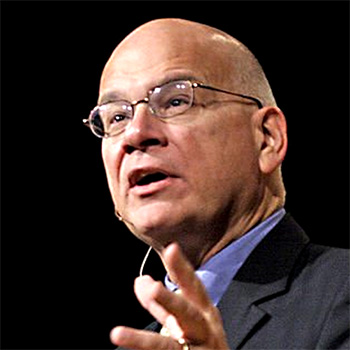
Timothy Keller
Timothy Keller, is the founding pastor of Redeemer Presbyterian Church in Manhattan, NY. He is also chairman and co-founder of Redeemer City to City, which has helped to launch over 200 churches in 35 cities, as well as publish books and resources ministry in urban areas. He received his MDiv from Gordon-Conwell Theological Seminary, and DMin from Westminster Theological Seminary. For over twenty years he has led a diverse congregation of young professionals that has grown to a weekly attendance of over 5,000. Dr. Keller’s books, including the New York Times bestselling The Reason for God: Belief in an Age of Skepticism and The Prodigal God: Recovering the Heart of the Christian Faith , have sold over one million copies.

Recent Podcasts
The Side B Stories – Adam Terry’s Story
Adam Terry experienced an intellectual crisis of faith.... Read More
- A Welcome Change in Apologetics by Randy Newman, Aimee Riegert on April 19, 2024
- Questions That Matter Podcast – Samuel James and Digital Liturgies by Samuel James, Randy Newman on April 19, 2024
Recent Publications

Isn’t Morality Relative?
It is widely accepted in the Western world... Read More
- Do Muslims and Christians Worship the Same God? by Andy Bannister on March 1, 2024
- Artificial Intelligence and Its Impacts on Humanity by John Lennox on February 13, 2024

GLOBAL EVENT: Keeping the Faith From One Generation To Another with Stuart McAllister and Cameron McAllister, 8:00PM ET
Experience a transformed life.

- Knowing and Doing
- Must Reads: Following Jesus
- Knowing & Doing 2011 Winter

Team Members

Contact Event Manager
Print your tickets.
April 29, 2024
Starts 3:17 am

A Discipleship Journey
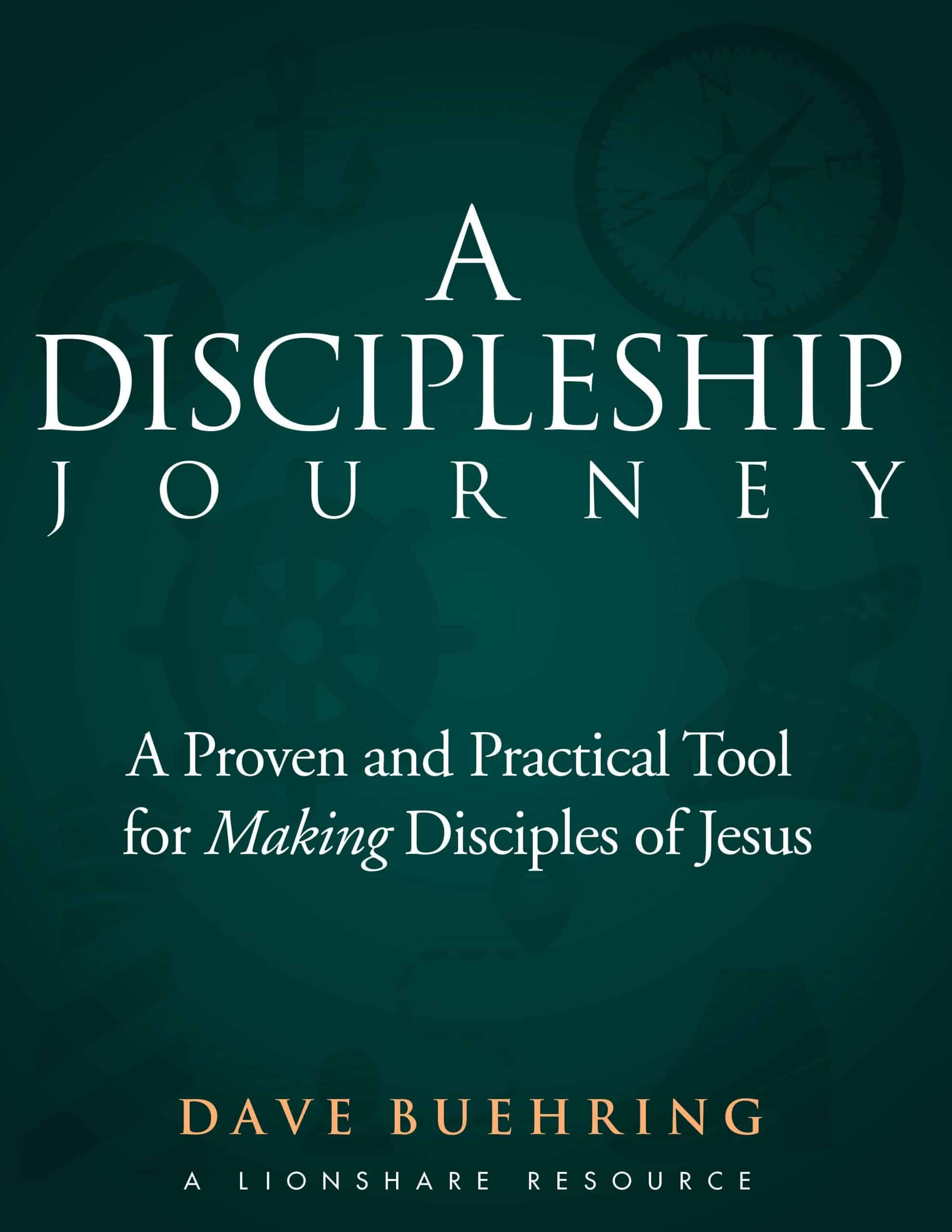
A Discipleship Journey is a resource created to equip followers of Jesus to grow spiritually while being empowered to make disciples that make disciple makers. Whether it is grounding a young believer in core biblical truths or shoring up the foundations of veterans of the faith, this interactive resource leads Jesus followers through a dozen key discipleship themes over the course of a year.
ADJ is a practical guide to make disciple makers! Each chapter builds on the one before to lead believers to an understanding of how what they have learned can be passed on and invested in others. There are 12 themes covered in this manual, or as some have called it “a handbook for the Bible.”
- Knowing God
- A Call to Discipleship
- The Grace of God
- The Cross, Sin and Repentance
- Hearing the Voice of God
- The Disciple’s Disciplines
- Relationships
- Spiritual Warfare
- The Church in Acts
- Advancing the Kingdom
- Purpose, Passion and Gifts
- Making Disciple Makers
New Teaching Videos
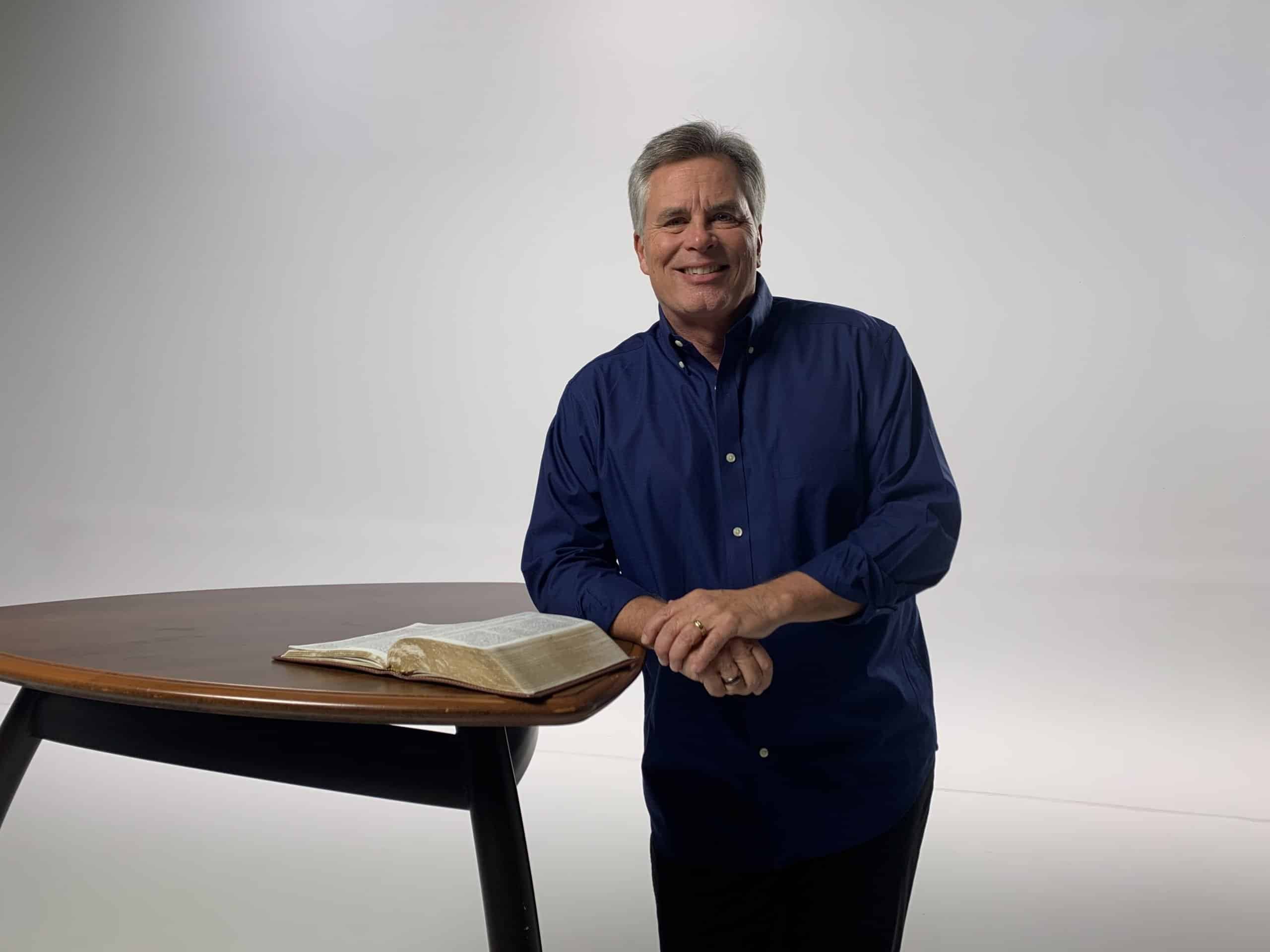
Subscribe to the teaching videos that accompany the new edition of “A Discipleship Journey” HERE .
If needed, additional instructions available HERE .
To watch an example, click HERE .
The Navigators


Our Digital Discipleship Journeys ® will inspire you to grow in Christ and help others do the same.
We all need at least one or two people in life to come alongside and encourage us to be all that God made us to be.
Has someone ever done that for you? Have you been that person for a friend? Now is your chance to learn how.
Your free Digital Discipleship Journey will include:
• A series of 8 to 13 weekly emails designed to help you grow spiritually, curated based on your answers to some brief questions about your walk with God
• Access to newly designed versions of our most popular discipleship resources and some brand new ones!
• Advice on how to use these easy-to-use resources to help friends become gripped by the gospel and begin their own adventure with God
• Power-packed biblical truth that will boost your faith and help you bring others on the journey
The First Step:
Sign-up with your name and email address below and then answer four quick questions on the next page to receive your first resource.
For over 90 years, Navigators have helped people around the world bring hope and purpose to others through something we call Life-to-Life ® discipleship. It’s not a program or curriculum, it’s more of a commitment to help our friends know Jesus, starting from wherever they are in life.

Cote d'ivoire
South africa, philippines, south korea, netherlands, switzerland, el salvador, latinoamérica y el caribe, puerto rico, trinidad & tobago, united states, new zealand.
- How to Know God
Do you ever wonder what Christians believe? Who Jesus is, what he did and why it matters? Get answers to these questions and more.
- Spiritual Growth
Take the next step in your faith journey with resources on prayer, devotionals and other tools for personal and spiritual growth.
- Life & Relationships
Explore resources to help you live out your life and relationships in a way that honors God.
- Bible Studies
Find resources for personal or group Bible study.
- Share the Gospel
Learn to develop your skills, desire and ability to join others on their spiritual journeys and take them closer to Jesus.
- Help Others Grow
Help others in their faith journey through discipleship and mentoring.
- Leadership Training
Develop your leadership skills and learn how to launch a ministry wherever you are.
- Language Resources
View our top Cru resources in more than 20 languages.
- Quizzes & Assessments
Have some fun taking various quizzes and assessments to learn about yourself and others.
Helping students know Jesus, grow in their faith and go to the world to tell others.
Reflecting Jesus together for the good of the city.
Partnering with urban churches to meet physical and spiritual needs.
Striving to see Christ-followers on every team, in every sport and in every nation.
Equipping families with practical approaches to parenting and marriage.
- High School
Reaching students and faculty in middle and high school.
Bringing hope and resources to military families worldwide.
- Locate Cru Near You
- Mission Trips
Volunteer abroad this year on a short term global missions trip offered by one of the best, most-reliable Christian missions organizations in the world.
- 1-Year Full-Time Internships
Internship opportunities with Cru's ministries.
If you're looking for the best Christian jobs and careers, check out Cru's ministry job openings for full- and part-time missionaries and professionals.
- Go International
Live in another country building relationships and ministries with eternal impact.
- Volunteer Opportunities
Would you like to give your time to work with Cru? We need you.
Find a Cru event near you.
- Explore Your Interests
Use your hobbies and interests to find the best place for you to serve.
How we seek to journey together with everyone towards a relationship with Jesus.
- Donor Relations
Answers to questions on donations, financial policies, Cru’s annual report and more.
- Statement of Faith
What we believe about the gospel and our call to serve every nation.
- Our Leadership
Learn about Cru's global leadership team.
- Cru Partnerships
When the global church comes together then powerful things can happen.
Leading from values so others will walk passionately with God to grow and bear fruit.
- Oneness in Diversity
Cru’s position on oneness in diversity.
- Sexuality and Gender
Today we encounter a wide variety of questions related to sexuality and gender. As followers of Christ, we want to navigate LGBT+ questions in a way that is compassionate to people and faithful to scripture.
Showing God in action in and through His people.
Hear what others are saying about Cru.
- Start A New Gift
- Missionaries
- Featured Opportunities
- More Ways to Give
Your Account
- Your Giving
- Payment Methods
- Donor-Advised Funds
- Stock and Non-Cash Gifts
- Cryptocurrency
- Planned Giving with Cru Foundation

$250,000 Launch Cru Now Matching Challenge
April 30th Deadline for DOUBLE Impact!
Discipleship
- Adult Discipleship Resources
- Cru22 Recorded Sessions
5 Basics of a Discipleship Time

Every Tuesday night for dinner, Nancy and I met for our discipleship time.
She was a teacher in the town I lived in and we had met at church. When I first met Nancy I could tell she was struggling in her relationship with God. We talked at length one night about several issues that were bothering her. She wasn’t sure she was a Christian, not sure why she was often downcast and without joy, and really not sure how the Bible applied to her life.
“Nancy, are you up for meeting each Tuesday night for dinner together?” I asked her one day. “I would love to help you and disciple you in each of these areas.”
She agreed and over the next 2 years God did a powerful work in her life as we looked at each issue together, studied the Bible and prayed. She grew deeper in her relationship with God, her understanding of the Holy Spirit and scripture.
My example is just one way to invite someone into a discipleship relationship. There are more, though, that you can consider: “I have a book that I think you would greatly benefit from. It outlines basic foundational lessons for growth in Christ. I would love to meet weekly with you to go through it – would you have time for that?” “You seem to have a lot of questions about God and the Bible and I can tell you are eager to learn. I would love to meet with you on a more regular basis, perhaps once a week (or every other week) so I can answer your questions and guide you in how to deepen your relationship with God. Can you meet for coffee on Thursdays?”
When you meet with a disciple, show up with a plan. Think through these 5 elements of a discipleship appointment to help you be intentional about your time together.
- Small Talk – This is a time to catch up on life, kids, work, etc. Don’t neglect this part to jump right into spiritual items. Use this time to gauge how your disciple is doing, and get to know him/her better.
- Accountability – What would your disciple like to move forward in? Is he wanting to memorize scripture, eat healthy, pay off debt? Is she wanting to challenge another person to discipleship, stop yelling so much at her kids, or develop better study habits? Also share your areas of need. In future appointments, ask each other about the issues to encourage each one another.
- Content – Starting with basic material is best with a new disciple regardless of how long they may have been a Christian. They will eventually disciple another person so choose material to cover with that in mind. Foundational topics such as the love of God, Jesus is the way to salvation, the role of the Holy Spirit, how to pray and how to study the Bible are a few good places to start.
- Prayer – Always reserve a time to pray to God. You can pray for items that may have come up during the small talk and accountability time. Pray for what you may have observed as you looked at scripture together. Perhaps you studied James chapter 1 and read that when we need wisdom for our lives and decisions we can ask God for it (James 1:5). Ask for wisdom in prayer.
- Outreach – This element of the discipleship appointment may not happen each time. This is where you could invite another person who has questions about Jesus to part of your meeting together. This person may have recently visited your church, Bible study or small group. It could be a co-worker that needs help spiritually. Your disciple will learn more by observing you navigate another person’s questions or watching you share the gospel message in a real-life scenario than from hours of instruction.
Whether you do dinner every Tuesday night, coffee on Monday afternoons, or lunch at the office, make time to meet with another person for discipleship. You never know how the investment you make now can have a big impact later.
Nancy went on to get married, become a prayer counselor at her church and, when we talked last, she and her husband were each reading through the Bible in a year.
- Find more resources on discipleship.
- Read Lori’s book, Start Here , on foundational lessons in Christ.
A Legacy of Changed Lives
See how students are making a lasting impact through summer missions with Cru.

Related Topics:
Previous story, 6 things you need to know if you want to make disciples, addressing your disciple’s problems, related products, jacked (ebook).

When War Comes Home

Combat Trauma Healing Manual

Ten Basic Steps Toward Christian Maturity (Spanish) - Step 7 - The Christian and Witnessing

The Secret (Ebook)

Transferable Concept 5 - How You Can Be a Fruitful Witness
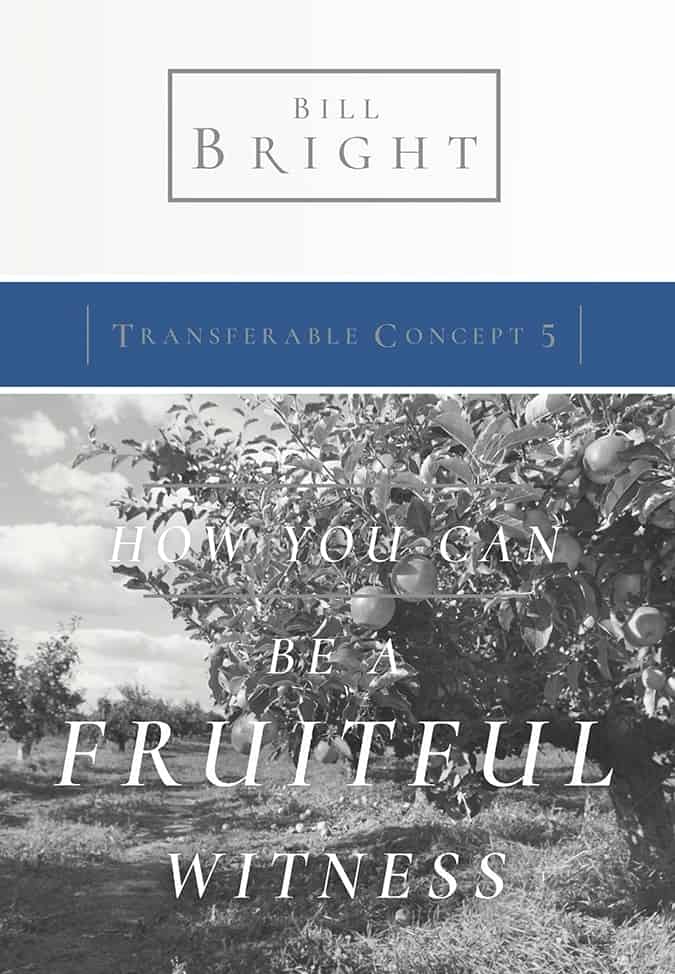
Loving Your Military Man Small Group Study

CoJourners Field Guide

Christian Growth in Five Steps (Ebook)
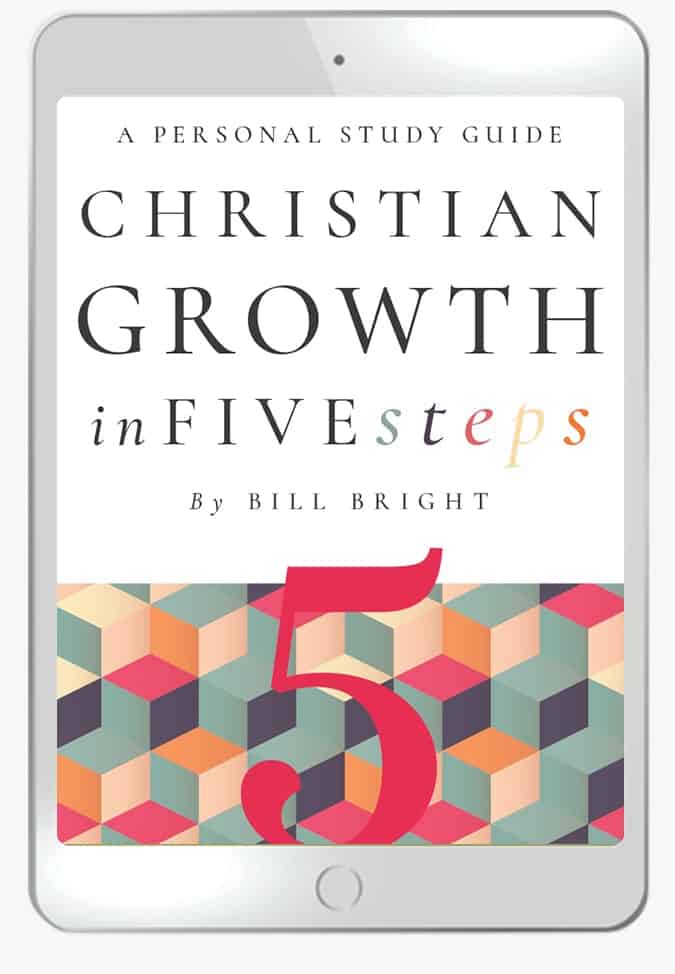
Shaped by God: Words for Life

Latest Stories in Discipleship
9 tips for one-on-one discipleship.
Christians are commanded to “go and make disciples.” These tips will help you do so effectively.
3 Ways Christian Community Can Support Your Spiritual Growth
Through the Holy Spirit’s gift of love, diverse members of a Christian community become a blessing to each other, helping each other to spiritually grow.
What Is Discipleship and How Does It Happen?
You may have heard of discipleship, but what does a disciple relationship actually look like? Learn what discipleship is and how it can be a part of your spiritual growth.
©1994-2024 Cru. All Rights Reserved.

IMAGES
VIDEO